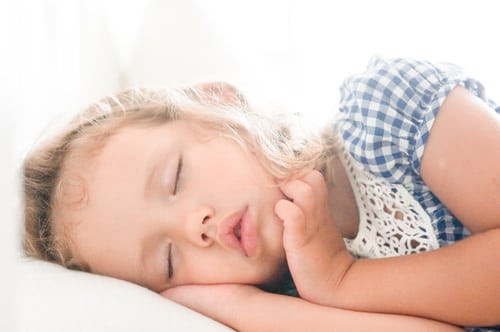
According to sleep experts, children in preschool need about 10 to 12 hours of sleep per night, while older children need around 8 to 9 hours. But a recent survey by the National Sleep Foundation indicated that over 60 percent of children have trouble either going to sleep or staying asleep during the week. Beauty rest is one thing, but lack of sleep in children can lead to much more serious problems including depression, hostility, weight gain, and lower school performance. The culprits that are keeping children awake at night?
- Studies suggest that over 60 percent of children are “caffeinated” each day with sodas and stimulant drinks. Caffeine can have a “half life” of up to 6 hours in children, meaning that its stimulant effects can keep working hours past the last drink.
- Around 45 percent of elementary school aged children have TV’s in their rooms, and late night TV watching is shown to make it harder for kids to go to sleep (Of course, we’re talking about after the TV is turned off).
- Stress and worry can be self-consuming in kids the same as in adults. One of our major jobs as parents is to teach our children how to manage and ease stress on a daily basis.
Well, its easy enough to understand how the problem looks. Kids either lay in bed and toss and turn or just have trouble settling in for the night. But what about some solutions? From talking to parents for years about this problem, the following suggestions have had the best results:
- Cut down on computer “screen time” for everyone. Its tempting to use that precious time in the late evening to check those last emails of the day, but both parents and children do better with less electronic activity in the late evening.
- Stay close. Humans have huddled together since ancient times at night, and children’s insecurity and fear shows this need. Ten minutes of quiet sitting or reading can help ease the separation for the night.
- Senses such as smell and hearing are “sensitized” at night. So why not use this to your advantage. Finding a relaxing essential oil (not the candle burning variety of course) and a CD of sleep music can help. Some popular favorites include Dreamscape – Lullabies from Around the World and The Swan and the Mermaid
Related: Eight Sleep Tips for Toddlers and Preschoolers
Moving past a negative sleep cycle takes time, strategy, and persistence. Have patience and stick with your plan and the Sandman won’t be such a stranger anymore. [Click here for more information on kids & sleep]


